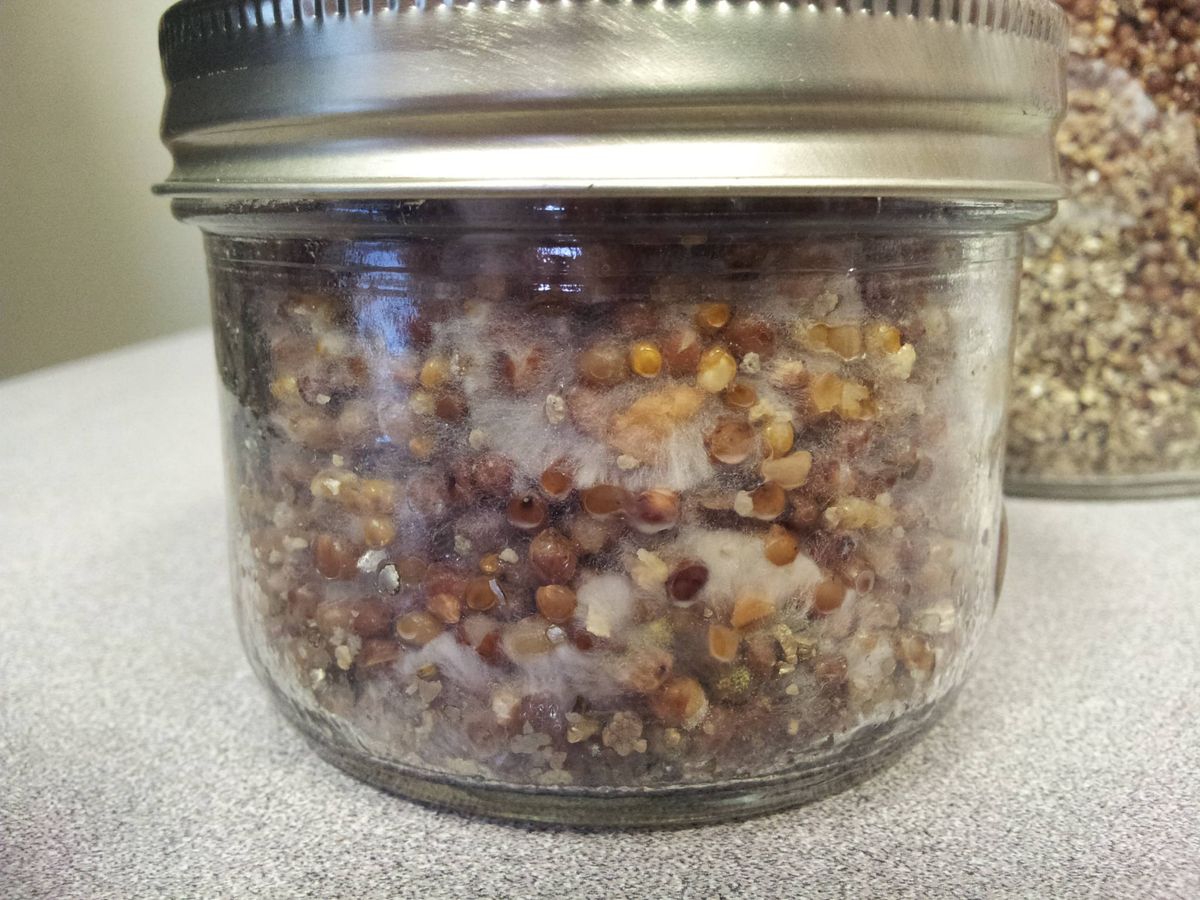Songs about substance abuse have been a prevalent theme in music for decades. Many artists have used their own personal struggles with addiction as inspiration for their music, creating powerful and emotional songs that resonate with listeners. These songs often serve as a form of therapy for the artists themselves, as well as a way to connect with others who may be going through similar struggles. In this article, we will delve into profound songs that tackle the harrowing battle with heroin addiction, highlighting the raw truth, defiance, haunting echoes, and the strength found in sobriety through the music of Neil Young, Amy Winehouse, Nine Inch Nails, and Pink.
Key Takeaways
- Neil Young’s ‘The Needle and the Damage Done’ is a heart-wrenching tribute to a friend lost to heroin, reflecting the song’s power to mirror society’s struggles with addiction.
- Amy Winehouse’s ‘Rehab’ epitomizes the complexity of addiction with its Grammy-winning impact and the bittersweet legacy left by the artist’s own battle.
- Nine Inch Nails’ ‘Hurt’ and Johnny Cash’s cover poignantly capture the universal pain of addiction, offering a blend of despair and hope through their renditions.
- Pink’s ‘Sober’ serves as an anthem for those fighting addiction, emphasizing the personal journey to recovery and inspiring others to choose sobriety.
- Music plays a vital role in addiction awareness and recovery, bridging understanding through song, enabling artists to advocate for change, and harnessing the power to heal and inspire.
The Raw Truth: Neil Young’s ‘The Needle and the Damage Done’

A Tribute to a Fallen Friend
Neil Young’s ‘The Needle and the Damage Done’ isn’t just a song; it’s a raw, heart-wrenching tribute to the friends he’s lost to heroin addiction. It’s a stark reminder that behind every addiction statistic, there’s a human story with a name, a face, and a grieving circle of friends and family.
- The song reflects the pain of watching someone you care about succumb to addiction.
- It’s about the helplessness of being unable to save them.
- It’s a call to remember the person, not just the addiction.
In the end, it’s the memories we hold onto, the laughter and the tears, that keep the legacy of a fallen friend alive.
Young’s lyrics are a collection of songs that capture the essence of moving furniture out, echoing the emotional and physical upheaval that comes with loss. The song serves as a reminder that our legacies are built on how we love and support each other, especially through the toughest of times.
The Stark Reality of Heroin Addiction
Neil Young’s ‘The Needle and the Damage Done’ isn’t just a song; it’s a melody of despair, echoing the grim truth of heroin’s grip on the lives it touches. The song strips away any romanticized notions, laying bare the raw and often fatal consequences of addiction.
- The song stands as a stark warning, exposing the brutal reality behind the glamourised perception of heroin.
- It’s a heart-wrenching reminder of the friends and talents we’ve lost to this battle.
- More than that, it’s a call to action, urging us to look beyond the music and see the urgent need for compassion and support.
In the end, the song isn’t just about the pain and loss; it’s about the urgent need for awareness and the hope that through this awareness, change can come.
Music as a Mirror to Society’s Struggles
It’s no secret that music has the power to reflect and even shape the societal conversations of its time. When it comes to the gritty realities of heroin addiction, songs like ‘The Needle and the Damage Done’ serve as a stark reminder of the consequences that ripple through communities.
- By sharing personal stories, artists like Neil Young give a voice to the voiceless, often sparking much-needed dialogue.
- These songs become anthems that can unify listeners, regardless of their personal experiences with addiction.
- They also play a crucial role in breaking down the stigma, encouraging open conversations about mental health and recovery.
Music doesn’t just entertain; it acts as a catalyst for social change, urging us to confront uncomfortable truths and work towards a more empathetic society.
Whether it’s through a haunting melody or a hard-hitting lyric, music about addiction challenges us to engage, empathize, and support those in their journey towards recovery. It’s a reminder that behind every song is a chance to understand and help heal the wounds of addiction.
Defiance in the Face of Addiction: Amy Winehouse’s ‘Rehab’

A Sassy Refusal to Conform
Amy Winehouse’s ‘Rehab’ isn’t just a song; it’s a bold statement of defiance. With a voice dripping in attitude, Winehouse delivers a sassy rebuff to the very idea of rehabilitation. The lyrics are a mix of personal rebellion and a refusal to be boxed in by societal expectations.
- I won’t go, go, go – the chorus rings out as a catchy, yet firm declaration of independence.
- No, no, no – becomes an anthem for those who resist the pressure to fit into a pre-defined mold.
In ‘Rehab’, Winehouse is not just singing about her own experiences; she’s voicing a broader sentiment of resistance. It’s a refusal to conform, a battle cry for the right to make one’s own choices, even in the face of criticism.
The content of the lyrics can be dark and depressing since they reflect a life which we wish had been otherwise, but songs like ‘Rehab’, ‘You Know I’m No Good’ …
This song, with its blend of personal struggle and universal defiance, continues to resonate with listeners who find their own stories in its verses.
Grammy-Winning Impact
When Amy Winehouse belted out Rehab, she wasn’t just dropping another hit single; she was etching her name into music history. The track’s defiant energy and Winehouse’s raw vocal prowess struck a chord with audiences and critics alike, leading to an unforgettable moment at the GRAMMYs.
- The song snagged the coveted Record of the Year award, a testament to its widespread appeal and the depth of Winehouse’s talent.
- Her genuine surprise and joy upon winning were palpable, a moment of triumph amidst personal battles.
- Rehab became an anthem for those struggling with addiction, offering a gritty, unapologetic perspective on the refusal to seek help.
The GRAMMY win was more than just a trophy; it was recognition of a voice that could not be ignored, a talent that demanded the world’s attention.
A Legacy of Talent and Tragedy
Amy Winehouse’s story is a poignant reminder that talent can shine brightly yet be overshadowed by personal demons. Her music, infused with raw emotion and authenticity, resonated with fans worldwide, creating a legacy that endures beyond her tragic passing.
- Her voice, a blend of jazz and soul, captured the complexity of her struggles.
- The lyrics, often autobiographical, offered a window into her battle with addiction.
- Her style, unmistakable and influential, left a mark on the music industry.
In the end, Amy’s legacy is a tapestry woven from threads of incredible musical achievements and the all-too-human story of her fight with heroin addiction. It serves as a stark reminder of the fragility of life and the relentless grip of addiction.
Her influence continues to inspire new generations of artists who relate to her honesty and the emotional depth of her songs. In the wake of her loss, the conversation about addiction in the music industry and beyond has gained a renewed sense of urgency, leading to a change in attitude towards seeking help and understanding for those who suffer.
The Haunting Echoes of ‘Hurt’ by Nine Inch Nails

Trent Reznor’s Painful Confession
Trent Reznor’s Hurt is more than just a song; it’s a raw and unfiltered dive into the abyss of addiction. The lyrics are a chilling narrative of self-inflicted pain and the relentless grip of heroin addiction. It’s as if Reznor is peeling back the layers of his soul, exposing the wounds for the world to see.
- The song’s protagonist is caught in a cycle of despair, where each verse builds upon the last, painting a picture of a life consumed by regret and sorrow.
- The chorus echoes the protagonist’s longing for relief, yet it’s clear that the damage done is far-reaching and possibly irreversible.
In a way, ‘Hurt’ serves as a musical confession booth, where the agony of addiction is both acknowledged and laid bare. It’s a testament to the power of music to convey the deepest human emotions, and a reminder that behind every note, there’s a story that’s painfully real.
Johnny Cash’s Poignant Cover
When Johnny Cash laid his voice on ‘Hurt’, he did more than just cover a song; he transformed it into a personal lamentation. Where Reznor’s rendition portrays a shattered individual, post-self-inflicted pain, reflecting on what he might have improved, Cash’s interpretation digs deeper into the soul of a man facing the twilight of his life, reflecting on loss and regret.
- Cash’s gravelly voice adds a layer of gravitas to the lyrics.
- The stripped-down acoustic arrangement complements the vulnerability in his delivery.
- The music video, featuring images of Cash’s storied past, amplifies the song’s emotional weight.
Cash’s ‘Hurt’ is not just a cover; it’s a testament to the power of music to convey profound personal truths. It’s a reminder that songs about addiction can resonate with anyone, regardless of their own experiences with the subject.
A Universal Tale of Despair and Hope
The song ‘Hurt’ resonates with so many because it captures the essence of human fragility and the struggle for redemption. It’s not just about the pain of addiction, but also about the hope that lingers in the aftermath of our darkest times.
- The lyrics are a raw, unfiltered glimpse into the soul of someone battling their demons.
- The melody, haunting yet beautiful, underscores the complexity of the human experience.
- The song’s universal appeal lies in its honesty; it’s a musical confessional that speaks to the heart.
The power of ‘Hurt’ lies in its ability to connect with listeners on a deeply personal level. Whether you’ve faced addiction yourself or watched someone you love fight that battle, the song offers a sense of solidarity and understanding. It’s a reminder that no one is alone in their pain, and that healing, though a rocky journey, is possible.
In the end, ‘Hurt’ is more than a song. It’s a lifeline thrown into the turbulent sea of human suffering, offering a grip to those who are slipping. It’s a testament to the resilience of the human spirit, and a beacon of light for those searching for the way back from despair.
Finding Strength in Sobriety: Pink’s ‘Sober’

The Battle Against Temptation
Pink’s ‘Sober’ isn’t just a song; it’s a raw narrative of the struggle against the siren call of addiction. The battle against temptation is a daily war, with each moment presenting a choice between succumbing and standing strong.
- Recognizing the triggers
- Seeking support from loved ones
- Finding healthy alternatives to cope
These are the steps that anyone fighting addiction might take, echoing the journey Pink describes in her powerful lyrics. It’s about acknowledging the allure of the high and the comfort it falsely promises, while also realizing the strength it takes to say no.
In the fight against addiction, every victory, no matter how small, is a monumental step towards freedom and self-discovery.
A Personal Journey to Recovery
Pink’s ‘Sober’ isn’t just a song; it’s a raw, musical diary that charts the ups and downs of the sobriety journey. It’s about setting those realistic goals and aligning them with the bigger picture of one’s life. Here’s how Pink might break it down:
- Define your sobriety timeline: Know where you’re headed and how long you plan to take to get there.
- Celebrate the milestones: Every small victory is a step away from addiction and should be celebrated.
- Lean on your community: Whether it’s friends, family, or support groups, don’t go it alone.
Determination and community support are the compass and map on this trek, guiding through the rough patches.
It’s a path marked by personal revelations and the courage to face the music—quite literally. Pink’s journey, much like many others, is a testament to the strength found in vulnerability and the power of a song to encapsulate the struggle and triumph of overcoming addiction.
Inspiring Others to Choose Sobriety
Pink’s ‘Sober’ isn’t just a personal anthem; it’s a beacon of hope for those teetering on the edge of relapse. It’s a raw, unfiltered look at the temptation and the sheer willpower needed to stay on the straight and narrow.
- The song’s narrative resonates with many who’ve faced their own demons.
- It’s a reminder that sobriety is a daily choice, a continuous battle against the lure of past vices.
- For some, it’s a source of strength, a musical companion on the journey to recovery.
In the realm of recovery, music can be a powerful ally. It’s a form of expression that can encapsulate the highs and lows of the sober path, often becoming a pivotal part of someone’s support system.
By sharing her own struggles and victories, Pink has inadvertently created a soundtrack for resilience. Her voice echoes in the minds of listeners, urging them to hold on, to fight through another day. And for many, that’s exactly what they need to push forward and reclaim their lives from addiction.
Music’s Role in Addiction Awareness and Recovery

Bridging Understanding Through Song
Music has a unique way of connecting people, transcending the barriers of language and culture. When it comes to the heavy topic of heroin addiction, songs can serve as a bridge, offering insight into the struggles faced by those caught in its grip.
- They tell stories that might be too painful to speak aloud.
- They express emotions that are hard to articulate.
- They provide a sense of solidarity and understanding for those who feel isolated in their battles.
Songs about addiction often resonate with listeners, creating a shared experience that can foster empathy and awareness. This shared experience is crucial in breaking down the stigma surrounding addiction and encouraging open conversations about recovery and support.
In the realm of music, we find a powerful ally in the fight against heroin addiction. It’s not just about the melodies or the rhythms; it’s about the messages and the moments of human connection they create.
Artists as Advocates for Change
When artists get real about their battles with addiction, they do more than just share a piece of their soul. They become beacons of hope and catalysts for change. By speaking openly about their struggles, they shatter the silence that often surrounds addiction, making it okay to talk about and seek help.
- They support recovery organizations, lending their voice and platform.
- Their music becomes a powerful tool for raising awareness.
- They inspire fans to show empathy and take action.
Artists aren’t just entertainers; they’re influential figures who can sway public opinion and policy. Their songs and stories can lead to a deeper understanding of addiction, encouraging society to move from judgment to support.
In the symphony of change, every note matters. Artists who use their music to fight addiction remind us that we’re all part of a larger composition striving for harmony.
The Power of Music to Heal and Inspire
Music isn’t just a backdrop for life’s moments; it’s a powerful force that can heal and inspire. When words fail, melodies speak, touching the deepest parts of our souls and offering solace where speech is inadequate. It’s no wonder that in the throes of addiction, music becomes a lifeline for many.
- Reflecting and Finding Meaning: Music allows us to reflect on our experiences and find the hidden lessons within them.
- Channeling Pain into Creative Outlets: It provides a means to process emotions and transform them into something beautiful.
- Helping Others with Similar Struggles: Sharing music can offer support and understanding to those facing similar battles.
In every note, there’s a hidden seed of growth and rebirth. Music has the unique ability to take us on a journey from despair to hope, from isolation to a sense of community. It’s a universal language that transcends barriers, connecting us in our most vulnerable moments.
Frequently Asked Questions
What inspired Neil Young to write ‘The Needle and the Damage Done’?
‘The Needle and the Damage Done’ was written by Neil Young as a tribute to his friend and bandmate, Danny Whitten, who tragically died of a heroin overdose in 1972. The song reflects the harrowing effects of heroin addiction and serves as a poignant reminder of its dangers.
How has Amy Winehouse’s ‘Rehab’ impacted the conversation about addiction?
Amy Winehouse’s ‘Rehab’ became a cultural phenomenon with its sassy defiance against going to rehab. The song won multiple Grammy Awards and brought attention to Winehouse’s struggles with addiction, opening up conversations about the realities of substance abuse and the pressures faced by those in the public eye.
Why is Johnny Cash’s cover of ‘Hurt’ considered so powerful?
Johnny Cash’s cover of ‘Hurt’ is revered for its raw emotional depth and the personal connection Cash brought to the song. His weathered voice and personal history with addiction and loss gave the song a new dimension of poignancy, resonating deeply with listeners.
What message does Pink convey in her song ‘Sober’?
In ‘Sober’, Pink explores the challenges of resisting temptation and the journey towards recovery. The song reflects her personal battle with addiction and the strength it takes to remain sober, offering inspiration to those who are facing similar struggles.
How do songs about substance abuse contribute to addiction awareness?
Songs about substance abuse can reduce stigma, raise awareness, and provide comfort to those affected by addiction. They share vulnerable stories that humanize the experience, challenge misconceptions, and encourage empathy and support for individuals in recovery.
Can music about addiction inspire people to seek help?
Yes, many individuals have found solace and motivation to seek help through songs that address substance abuse. Songs like ‘Rehab’ by Amy Winehouse and ‘Sober’ by Pink have inspired listeners to take the first steps towards recovery and healing.
